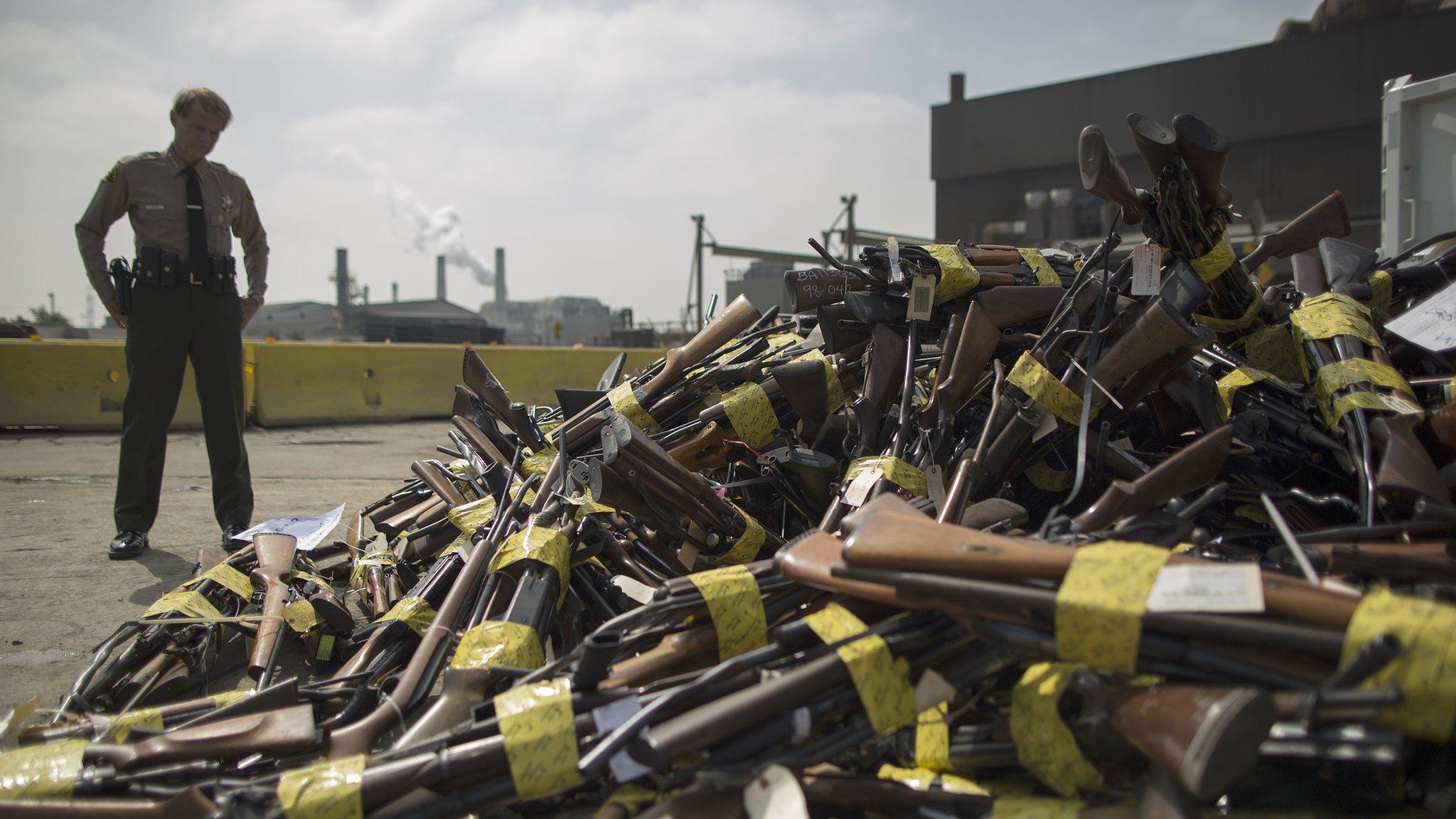Florida shooting: School threats spike 'significantly'
- Published
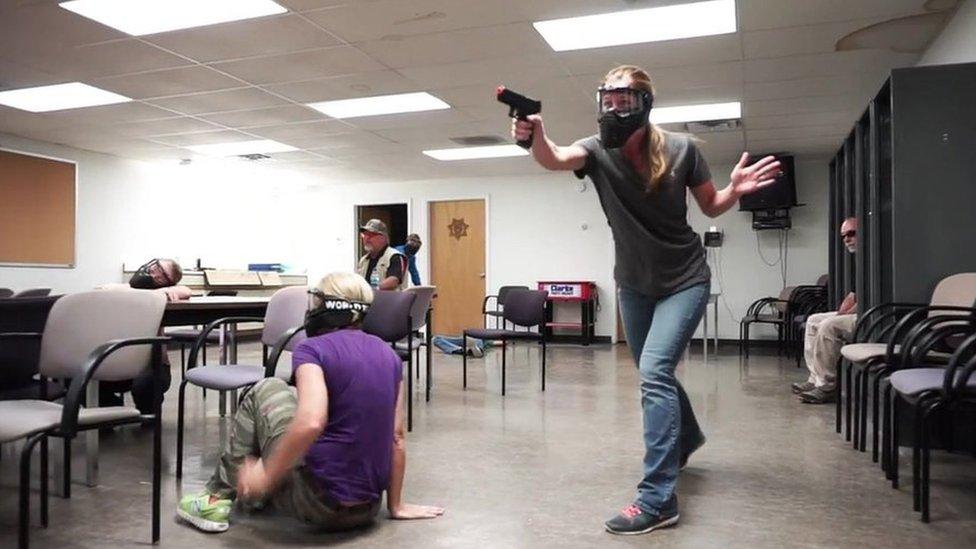
A US not-for-profit organisation has reported an increase in the number of firearms threats in US schools
For one small US non-profit group, the murder of 17 people at Marjory Stoneman Douglas High School came as no surprise.
"We felt like there was something big potentially coming," said Amy Klinger of the Educators' School Safety Network.
Her organisation tracks media reports on school threats and incidents. It found a 12% increase in threats to schools between the autumn school semesters of 2016 and 2017, and a 59% rise in violent incidents.
But what has alarmed the group is that they have tracked almost 400 cases since the 14 February attack.
The Ohio-based network has seen up to 65 threats to US schools a day, compared with a daily average of 11 before.
"We always know there's an uptick after an event like [Florida's school shooting] - a contagion effect, a copycat effect," Ms Klinger, who has a 28-year career in education, said. "But this is a significant spike."
Ninety minutes after the gunman, alleged to have been Nikolas Cruz, killed students and three teachers in Parkland, Florida, there was a new threat in Brooklyn, New York.
Two 16-year-old boys are alleged to have posted a picture on social media platform Snapchat. One was posing with what looked like an assault rifle, New York police told the BBC.
They had threatened to attack their charter school and captioned the photograph with "Don't come to school tmw", prosecutors said according to local media, external.
Two days later, a security guard at a California high school overheard a student threatening to "shoot up" his school in the next few weeks after a teacher took away his earphones.
The student said he was joking, according to local media, but after a search of his home, police found two semi-automatic rifles similar to the AR-15 used by the Florida gunman, two handguns and 90 high-capacity magazines.
'We cannot afford to not act'
While not every threat has proved credible, authorities across the country are not taking any chances.
"We cannot afford to not act on any threat," County Sheriff Jim McDonnell told the LA Times. His department has since set up a 24-hour special team to tackle the threats that come in.
As a gunman opened fire in a Florida high school, students inside reached for their phones.
Since the Florida shooting, LA school authorities have received 160 calls related to a "possible criminal threat" and police recorded 19 tips about possible threats against local schools, compared with 52 in the whole of 2017.
"You've seen a huge spike in kids being arrested," says Ms Klinger, who suggests this trend will help act as a deterrent against hoaxes as well as serious threats.
"We can't joke about having a bomb in our bag in an airport, and so now we can't say we're going to shoot up our school and say that's a joke - it's not."
She attributes the recent influx in threats and incidents to three elements - the intensity to which Americans are responding to the Florida tragedy, the copycat effect that incites others to commit similar attacks, and social media.
Over half have come via social media and have heightened alarm amongst parents.
A social media post that spread among students and parents on Friday at Bayonne High School in New Jersey led to 500 children being pulled from the school.
Authorities eventually said it was a false alarm based on a threat made to another high school in New Mexico that shared the school's BHS acronym.
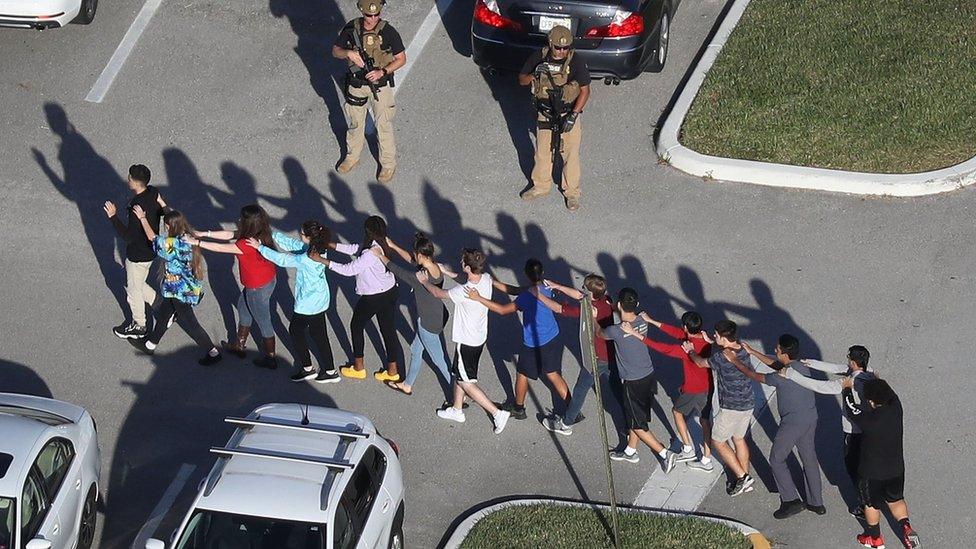
Student who survived the Florida shooting have spoken out over gun control
In the wake of the Parkland attack, the US's worst school shooting since 2012, debate has been rife on what to do to ensure further attacks on schools are stopped.
Student survivors are calling for tighter gun control while Republicans have put forward the idea of arming teachers.
President Trump tweeted just 10 days after the Florida attack about incentivising educators to carry guns with bonuses and annual training.
Allow X content?
This article contains content provided by X. We ask for your permission before anything is loaded, as they may be using cookies and other technologies. You may want to read X’s cookie policy, external and privacy policy, external before accepting. To view this content choose ‘accept and continue’.
Arming teachers would be too expensive and would not make children safer, Ms Klinger said.
"It's just not a good solution. I can't find anyone [in the field of education] who thinks it's a good idea."
The threat of a mass shooting at a school remains high in the minds of Americans, and her network's research on national trends has become increasingly relevant to the national debate.
They began looking at bomb threats in 2014 and the following year set up a database on threats to schools when they found none existed.
But Ms Klinger worries the numbers are significantly under-reported.
"Our concern is that we need to know what some of the trends are predicting right now," she says, "because it's a lot easier for someone to secure a gun than build a bomb."
- Published20 February 2018
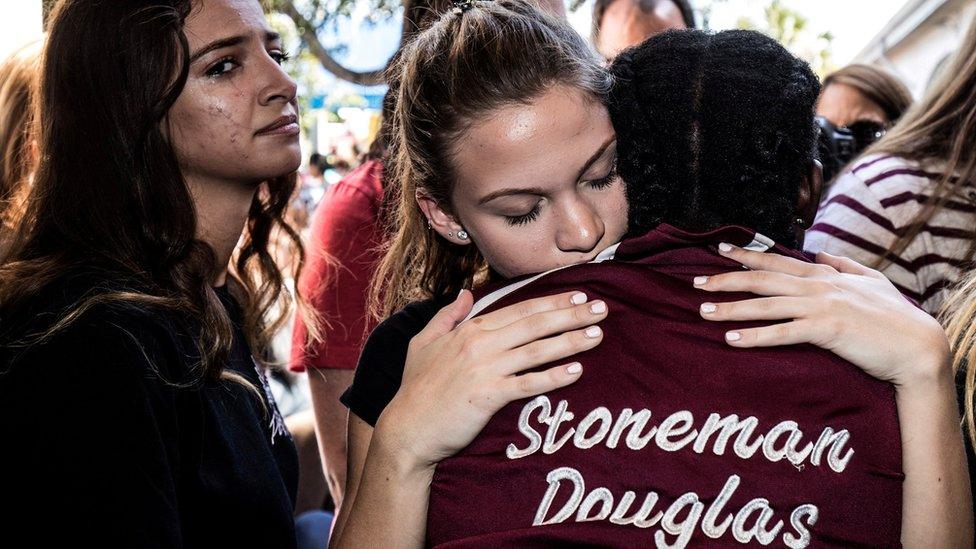
- Published22 February 2018
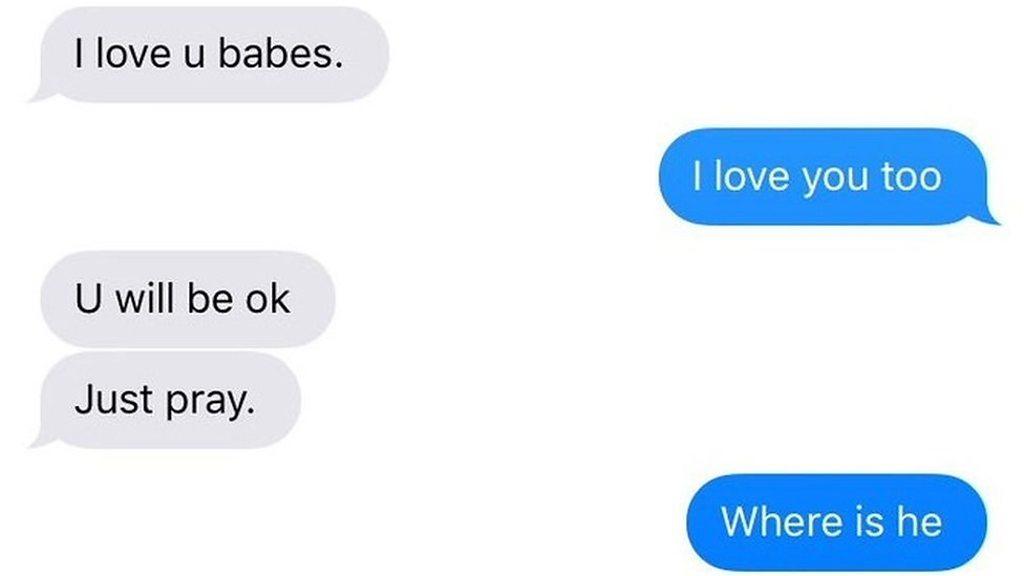
- Published23 February 2018
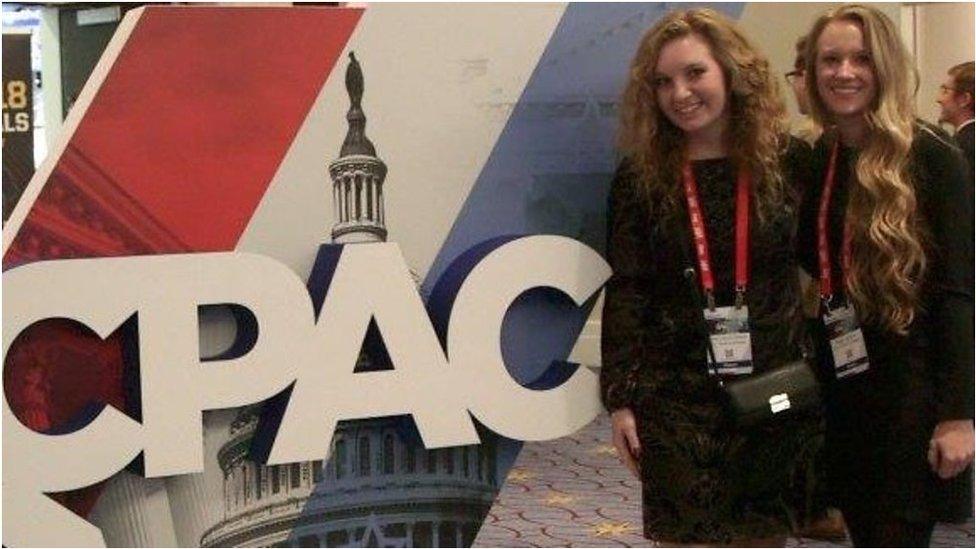
- Published23 February 2018
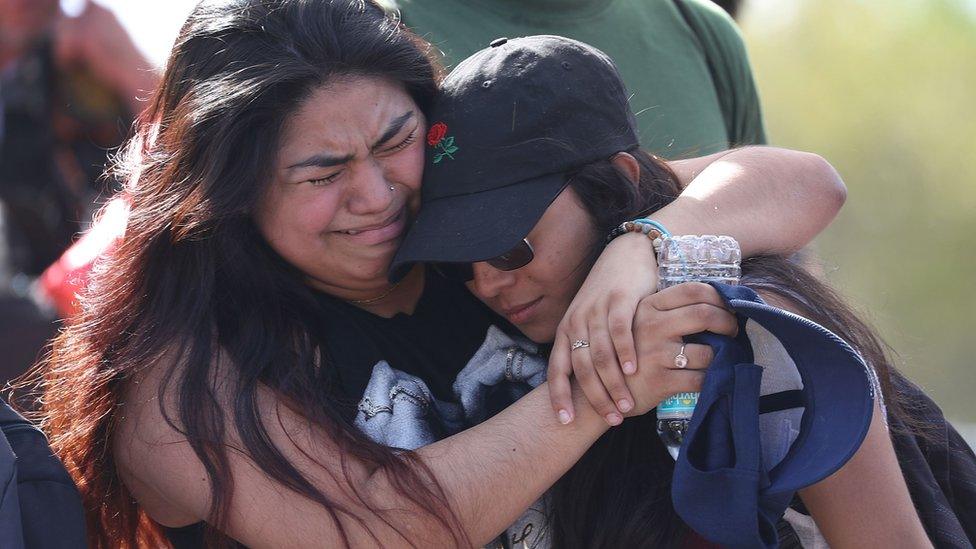
- Published22 February 2018
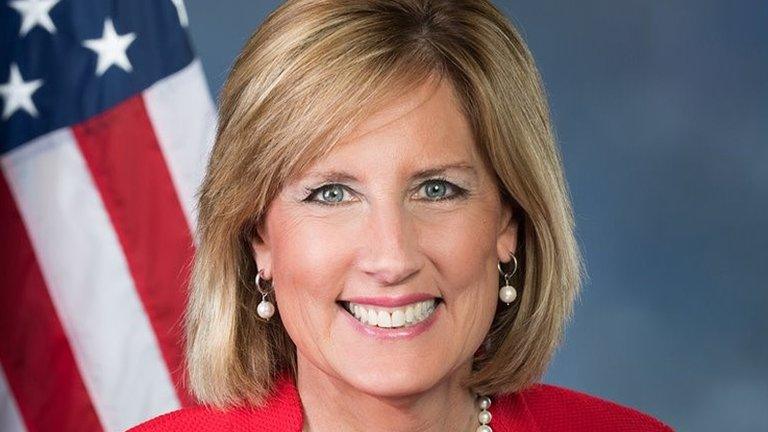
- Published4 October 2017
